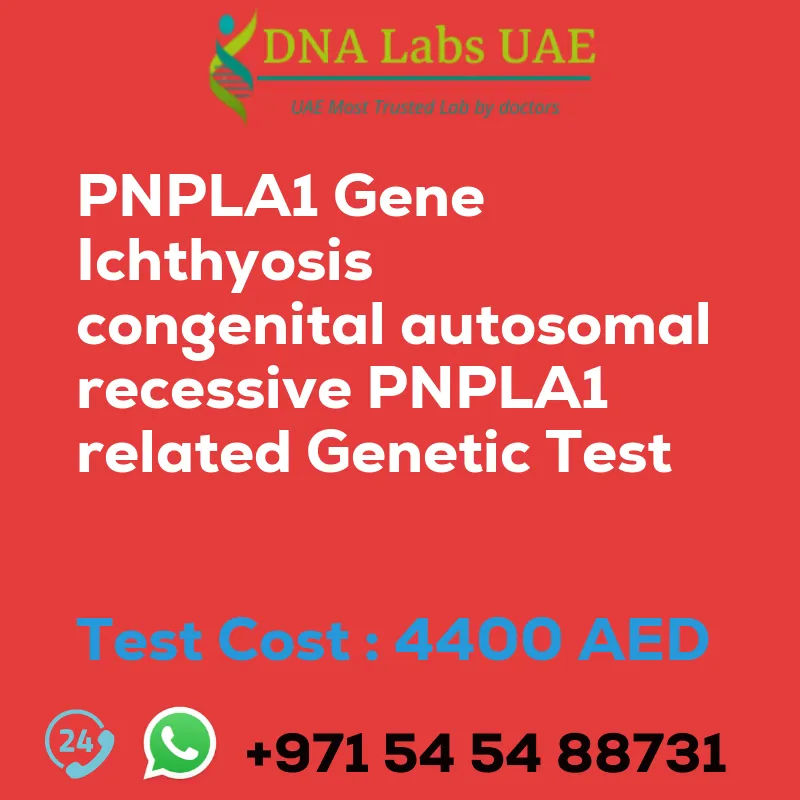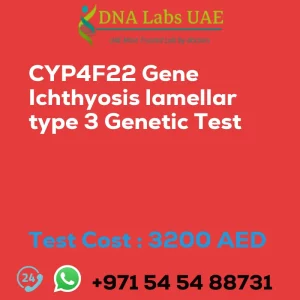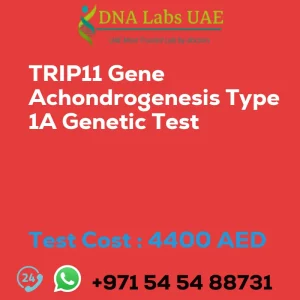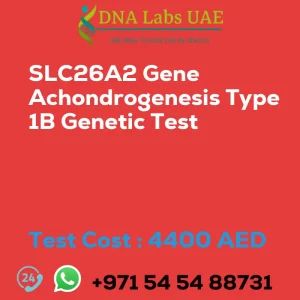PNPLA1 Gene Ichthyosis Congenital Autosomal Recessive PNPLA1 Related Genetic Test
Are you or a family member experiencing symptoms of ichthyosis congenita? DNA Labs UAE offers a comprehensive genetic test called PNPLA1 Gene Ichthyosis Congenital Autosomal Recessive PNPLA1 Related Genetic Test to diagnose this rare genetic disorder.
Test Details
The PNPLA1 gene is associated with ichthyosis congenita, a condition characterized by dry, scaly skin. This disorder is inherited in an autosomal recessive manner, meaning both parents must pass on a mutated gene for an individual to develop the disorder.
To diagnose ichthyosis congenita caused by mutations in the PNPLA1 gene, we utilize Next Generation Sequencing (NGS) technology. NGS allows for the sequencing of multiple genes simultaneously, making it a powerful tool for identifying genetic mutations associated with various disorders.
The PNPLA1 related NGS genetic test involves obtaining a DNA sample, usually through a blood sample or cheek swab, from the individual suspected of having ichthyosis congenita. The DNA is then analyzed using NGS technology to identify any mutations or changes in the PNPLA1 gene.
By identifying specific mutations in the PNPLA1 gene, the genetic test can confirm a diagnosis of ichthyosis congenita and provide valuable information for genetic counseling and management of the condition. It can also help determine the risk of passing on the disorder to future generations.
Test Components and Price
The PNPLA1 Gene Ichthyosis Congenital Autosomal Recessive PNPLA1 Related Genetic Test is priced at 4400.0 AED.
Sample Condition
We accept blood samples, extracted DNA, or one drop of blood on an FTA Card as sample conditions for this test.
Report Delivery
Once the sample is received, the report will be delivered within 3 to 4 weeks.
Test Type
The PNPLA1 Gene Ichthyosis Congenital Autosomal Recessive PNPLA1 Related Genetic Test falls under the categories of Osteology, Dermatology, and Immunology Disorders.
Doctor and Test Department
This test is conducted by a Dermatologist in the Genetics department.
Pre Test Information
Prior to the test, it is important to provide the clinical history of the patient who is going for the PNPLA1 Gene Ichthyosis Congenital Autosomal Recessive PNPLA1 Related NGS Genetic DNA Test. Additionally, a genetic counseling session will be conducted to draw a pedigree chart of family members affected by the disorder.
A genetic counselor will also discuss the PNPLA1 gene and its association with ichthyosis congenita, providing guidance and support throughout the testing process.
Please note that genetic testing should always be performed by a qualified healthcare professional or genetic counselor who can interpret the results and provide appropriate guidance.
| Test Name | PNPLA1 Gene Ichthyosis congenital autosomal recessive PNPLA1 related Genetic Test |
|---|---|
| Components | |
| Price | 4400.0 AED |
| Sample Condition | Blood or Extracted DNA or One drop Blood on FTA Card |
| Report Delivery | 3 to 4 Weeks |
| Method | NGS Technology |
| Test type | Osteology Dermatology Immunology Disorders |
| Doctor | Dermatologist |
| Test Department: | Genetics |
| Pre Test Information | Clinical History of Patient who is going for PNPLA1 Gene Ichthyosis congenital, autosomal recessive, PNPLA1 related NGS Genetic DNA Test. A Genetic Counselling session to draw a pedigree chart of family members affected with PNPLA1 Gene Ichthyosis congenital, autosomal recessive, PNPLA1 related NGS Genetic DNA Test gene PNPLA1 |
| Test Details |
The PNPLA1 gene is associated with a condition called ichthyosis congenita, which is a rare genetic disorder characterized by dry, scaly skin. This condition is inherited in an autosomal recessive manner, meaning that an individual must inherit two copies of the mutated gene (one from each parent) in order to develop the disorder. To diagnose ichthyosis congenita caused by mutations in the PNPLA1 gene, a genetic test called Next Generation Sequencing (NGS) can be performed. NGS is a technique that allows for the sequencing of multiple genes simultaneously, making it a powerful tool for identifying genetic mutations associated with various disorders. The PNPLA1 related NGS genetic test involves obtaining a DNA sample, usually through a blood sample or cheek swab, from the individual suspected of having ichthyosis congenita. The DNA is then analyzed using NGS technology to identify any mutations or changes in the PNPLA1 gene. By identifying specific mutations in the PNPLA1 gene, the genetic test can confirm a diagnosis of ichthyosis congenita and provide valuable information for genetic counseling and management of the condition. It can also help determine the risk of passing on the disorder to future generations. It is important to note that genetic testing should be performed by a qualified healthcare professional or genetic counselor who can interpret the results and provide appropriate guidance and support. |








